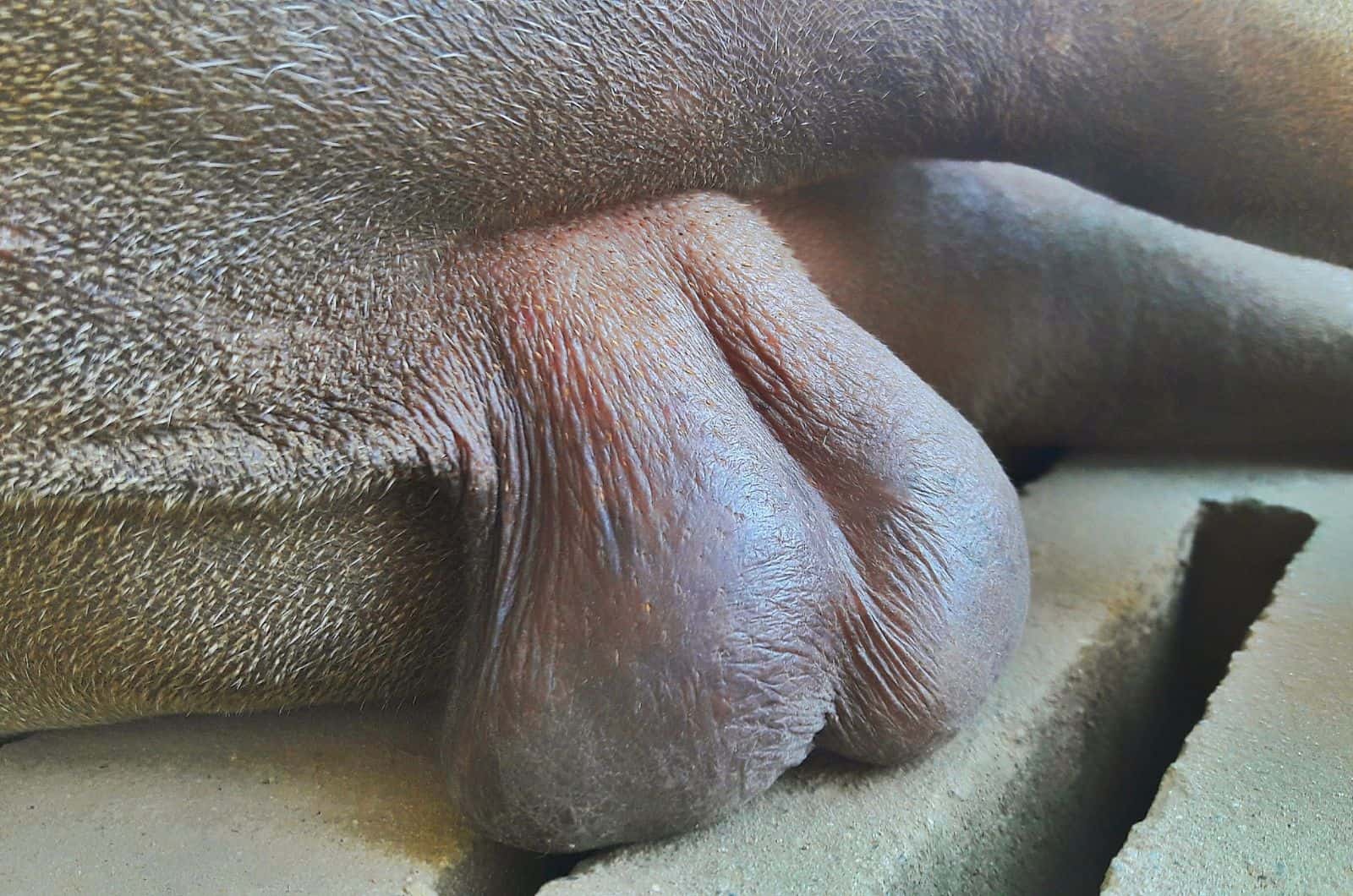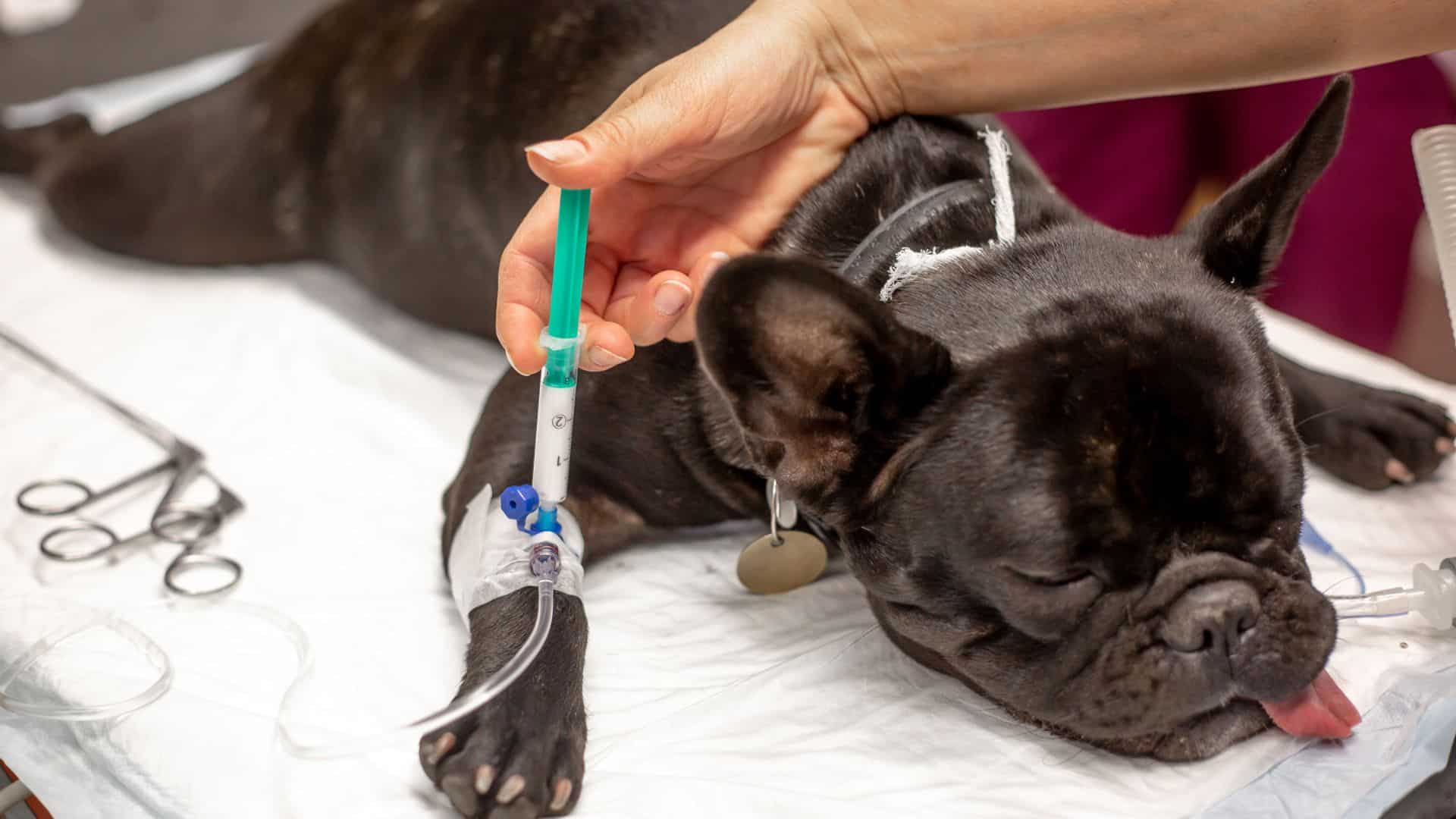Hey PupViners!
I hope everything’s pink and peachy with you guys because I know someone that’s all dark and gloomy. Precisely, I know a pupper whose skin is turning dark, and his belly is covered in black spots.
A friend of a friend called me yesterday all worried. He said his German Shepherd is getting black dots on his belly, and he never had those before.
Normally, I wouldn’t be too worried because some dog breeds are born with such colorations and they’re perfectly fine.
However, this is a German Shepherd, and their belly isn’t supposed to be speckled with black dots. Instead, the skin color should match the coat color.
The German Shepherd in question is a younger dog, so we can’t assume those are freckles that come with old age.
I didn’t want to scare my friend, so I advised him to see the vet to run some tests. I have a hunch what might be wrong with that dog, but even I can’t be 100% sure before I see test results.
Here’s what might be the reason behind that skin discoloration!
#1 Allergies

Allergies are always my first concern in all kinds of situations, but I had a feeling they’re not responsible for this skin change. Why? Because this dog is already on a sensitive diet, completely suitable for his condition.
And, he has been on this diet for a while, without any issues.
Still, in the case of a sudden dietary change, i.e., switching to a new formula or changing the food brand, allergies may occur, and they will present themselves in the form of itchiness, redness, those black spots, diarrhea, vomiting, etc.
Usually, such skin reactions are followed by rashes and dry skin. Those are other helpful signs that should tell you whether allergies are the reason behind your dog’s speckled belly.
#2 Irritations, Skin Infections, And Parasites

I feel like this world has changed for the worst because all of us can feel those changes… even dogs.
All kinds of things cause skin irritations, from spending time near some plants to reacting to your home detergents or catching creatures like mites.
You can suspect those black dots are a result of skin irritations in the case where your dog actually scratches his belly a lot. Irritations are also followed by skin dryness, redness, and flakiness. It’s not something I’d love to treat at home, so better contact the vet for further advice.
Parasites and things that cause infections, such as fungus or yeast, are a bit worse to handle. They also exhibit the same symptoms, but the treatment is much more complicated.
The only way you could be sure of what’s wrong with your dog is to run a skin swab and check it under a microscope.
Since the hero of our story had zero issues with itching or scratching, I immediately excluded these reasons.
#3 Hypothyroidism

I believe my friend’s German Shepherd has hypothyroidism. This condition is extremely common with German Shepherds, and that’s just one of the reasons why I suspect it. Of course, other than the black spots. |1|
In a further discussion with my friend, I learned that his coat isn’t as shiny as it was before. He just thought the shedding season was approaching. Also, he mentioned that his dog did put on an extra pound or two, but he claims that’s because he doesn’t exercise as strenuously as before.
No, hot weather is not an excuse for this. Dogs shouldn’t be putting on additional weight if they haven’t eaten more food than before. German Shepherds, in particular, are always active dogs. Only when something is bothering them will they become uninterested in playtime.
I told that friend that melasma, or the dark skin patches, discoloration, or black dots, can be linked to hypothyroidism. But, it would be better to take the dog to a vet and run tests. Better safe than sorry!
Update
I guessed it right. The German Shepherd from the beginning of our story was diagnosed with hypothyroidism. It’s a common condition for German Shepherds, which can be manifested with melasma, or dark brown / black skin marks on the dog’s belly.
The GSD has started his treatment for hypothyroidism and time will tell us when those dark patches will go away.
See, it’s not always the least-severe option. Allergies and irritations might be the first suspects, but if we treated dogs just for those, we’d be severely wrong.
Sometimes, it’s good to take a look at the entire picture and ask about all kinds of symptoms the dog might be exhibiting, just to get the answer.
Of course, both the dog owner, the vet, and I hoped it wouldn’t be something as serious as hypothyroidism, but it turns out that it is. Still, it’s a good thing that the dog is young and will handle this condition much better than some older canines.
Source:
Milne KL, Hayes HM Jr, Epidemiologic features of canine hypothyroidism. 1981. DOI











